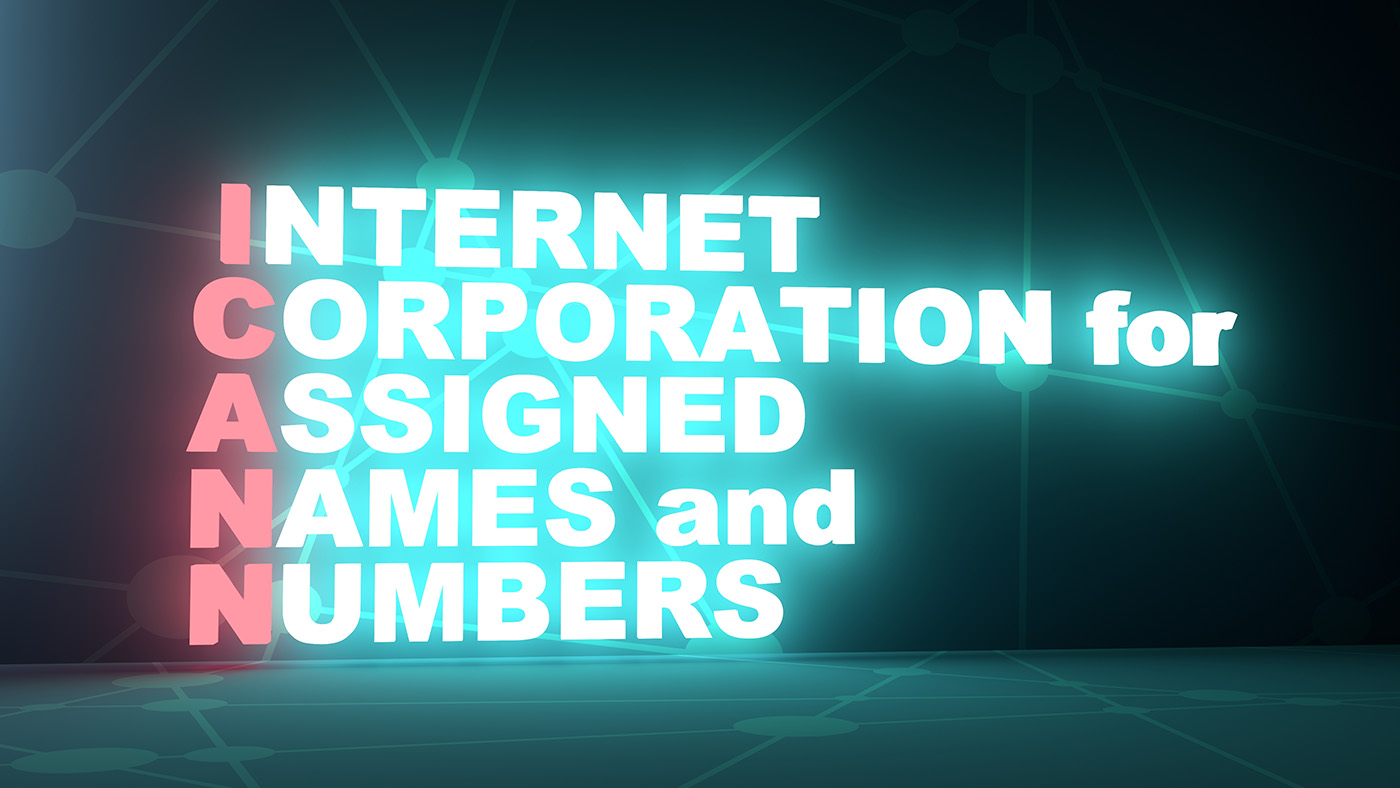Improved Multi-Stakeholderism for Tomorrow: Securing the Internet Governance System
How can we shape the trustworthy future of the Internet? Through addressing challenges and working on solutions in the multi-stakeholder approach, as advised by the Australian .au Domain Administration (auDA).

©Blue Planet Studio | istockphoto.com
What’s the matter with Internet governance?
Internet governance is at an inflection point.
The multi-stakeholder model, which forms the foundation of the Internet’s dynamism and underpins its success, is under pressure from those who seek greater control of its governance.
The model is not without its challenges. Multi-stakeholder processes can be time-consuming, and at times can be at risk of capture by vested interests. However, it is the only identified way to incorporate input from all relevant stakeholders and ensure an open, free, secure, and globally interoperable Internet.
The Internet governance system is at risk of being superseded by inter-governmental processes if the multi-stakeholder model fails to improve and no collective action to support and improve it is taken.
It is therefore incumbent upon the multi-stakeholder community to work together to improve the Internet governance system, so that it effectively addresses the challenges of a modern Internet.
Internet governance at an inflection point
As the strategic and economic importance of the Internet has increased, so too has competition about its governance and management, with debates increasingly influenced by geo-political power dynamics.
Shifting technology and Internet governance issues into the multilateral system and away from the multi-stakeholder model has become a priority for several countries, including many developing countries. Some governments are attracted by the idea that United Nations (UN) knowledge and resources can be harnessed to govern the Internet.
Adding to the geo-political pressure, issues such as privacy, security, mis- and disinformation, and the impact of newer technologies like blockchain and artificial intelligence (AI) present complex global public policy challenges that the current governance system was not designed to address.
In addition, there are several inter-governmental processes on the horizon that could result in significant and irreversible changes to the current multi-stakeholder Internet governance model. These include:
- The Summit of the Future (Summit), currently scheduled for September 2024. An initiative of the UN Secretary-General, the Summit is being promoted as a once-in-a-generation opportunity for UN Member States to improve cooperation on addressing critical challenges and to reinvigorate the entire global multilateral system. However, the extent to which non-governmental stakeholders will be able to participate in the Summit, other than through their governments, is unclear.
- The Global Digital Compact (GDC), expected to be agreed at the Summit. The GDC is intended to outline shared principles for an open, free, and secure digital future.[1] In contrast to the existing multi-stakeholder Internet governance system, the GDC could represent a significant shift to the multilateral system, where only nation states vote under the guidance of the UN. In essence, the GDC could see Internet governance processes embedded within the inter-governmental politics of state-to-state processes.
- The 20-year review of the 2003-2005 World Summit on the Information Society (WSIS+20).[2] This is due to take place in 2025. The creation of the Internet Governance Forum (IGF) was a key outcome of the first WSIS and its current mandate is due to expire in 2025.
It is possible that there will be some overlap in the consideration by the WSIS+20 review and the GDC of certain digital and Internet governance issues. It is also possible that the consequent outcomes, taken together, could result in an increased consolidation of multilateral decision-making that erodes the multi-stakeholder Internet governance system.
While these developments and processes present challenges for the future of the multi-stakeholder Internet governance system, they also present opportunities for the Internet community to address them collectively.
Proposed actions to sustain and improve multi-stakeholder Internet governance
In August 2023, the .au Domain Administration (auDA) released its Internet Governance Roadmap 2023-2025. In the Roadmap, we propose the following actions to sustain and improve multi-stakeholder Internet governance to ensure the Internet remains open, free, secure, and global, so that everyone can continue to enjoy its social and economic benefits:
Shared principles to shape Internet governance
Recognise the need for principles to shape the framework of Internet governance, at a NETmundial+10 event or similar in 2024. The event should take place in a multi-stakeholder fashion, consistent with the norms of Internet governance practice.
Refreshed principles will provide a stronger foundation for the ongoing evolution of the Internet governance system. They could give greater clarity to the boundaries of Internet governance, as well as how it can contribute effectively to digital governance and public policy.
Such a forum could be a chance for multi-stakeholder inputs to contribute to the inter-governmental discussions coming up.
Broader cooperation and participation
Enhance participation by underrepresented stakeholder groups and regions and increase the focus on the inclusion of multi-disciplinary stakeholders to drive better outcomes grounded in the needs of all communities.
To ensure that the Internet governance system continues to be one that is multi-stakeholder-led rather than one-stakeholder, government-led, it is important that it evolves in a way that is genuinely inclusive and meets the needs of all stakeholder groups across all regions, not just in the developed world.
This would require a significant uplift in the resources applied to capacity building and to enabling participation in regional and global Internet governance processes. The technical and business communities should commit additional funding, in partnership with governments, to ensure this outcome.
New goals to set direction
Foster the creation of goals to shape the work of Internet governance and connect them to the UN Sustainable Development Goals (SDGs), which are widely understood and adopted at global scale.
Developing a set of agreed common global goals with an explicit connection to the SDGs would elevate the importance of technology in today’s social, political, and economic environment and articulate shared objectives to guide the work of the Internet governance system. Development of the goals would need to occur in a multi-stakeholder fashion.
Such goals could also shape the future development of the Internet to better support the agreed ambitions for global sustainable development.
Stepping up leadership from the technical community
Foster collaboration with the technical community, the stakeholder group that keeps the Internet running, understands the principles upon which the Internet was built, and endows it with the potential to be a common good for all.
The technical community has a unique and essential contribution to make to the governance of technologies and the implications of policy changes on the operational aspects of the Internet. It should lead multi-stakeholder discussions to ensure the continued operation of the Internet in a way that reflects the open, scalable, accessible principles upon which the Internet was built.
The technical community can also support efforts to evolve multi-stakeholder Internet cooperation by:
- Ensuring better coordination among existing organizations in the Internet governance ecosystem;
- Strengthening collaboration between policy and technical stakeholders; and
- Advocating for coordinated technical community input into public policy and multilateral discussions and decision-making.
Consideration of institutional innovation and development
Explore institutional innovation, including the possibility of new collaborations or institutions to address emerging digital governance concerns where today’s Internet governance system cannot help.
Where new issues such as AI governance have emerged that are not well catered for by current institutions or processes, new ones may be required. These should be founded on multi-stakeholder principles.
Approaches like this would allow non-government stakeholders to better understand the concerns of governments and would allow governments to better understand the technical implications of proposed regulatory changes, or the impact on business models and flow on effects to end users.
What’s the alternative?
Today’s multi-stakeholder Internet governance system is not broken. It is effective but can and should be further improved to counter criticisms and remain the preferred alternative to multilateral governance. If it is unable to adapt, calls for the UN to govern the Internet will grow louder.
Together for a better future of the Internet
By working together, we can shape and secure the future of the Internet and an effective, sustainable, and legitimate Internet governance system.
We welcome your feedback and ideas. Contact us at internet.governance@auda.org.au or track our Internet governance work on the auDA website.
Footnotes
[1] See auDA’s shared submission to the Global Digital Compact with other Australia Internet governance stakeholders and our proposal for a better way forward that adopts the multi-stakeholder approach.
[2] Read about what WSIS+20 is and why it matters on the auDA blog.
auDA is the administrator of the .au domain name system (DNS), which is Australian critical infrastructure. auDA is a not-for-profit, endorsed by the Australian Government to administer .au domain for all Australians. Through its stewardship of the .au domain and support of multi-stakeholder Internet governance, auDA strives to ensure the Internet remains open, free, secure and global.
Annaliese Williams is a policy analyst with a particular interest in the space where Internet policy intersects with international relations. She joined auDA as a specialist advisor in 2020. Previously, she worked for the Australian Government, serving as Australia’s representative in ICANN’s Governmental Advisory Committee and the International Telecommunication Union. She has been involved in Internet governance discussions in Australia, the Asia Pacific and internationally since 2010. Annaliese is based in Canberra, Australia.
Jordan Carter is an Internet domain name industry executive with deep expertise in Internet governance and public policy matters related to the Internet. He spent close to a decade as Chief Executive of InternetNZ, the .nz ccTLD manager. In 2022 he joined auDA, the .au ccTLD manager, in a new role as Internet Governance and Policy Director. Jordan has been involved with Internet governance and policy institutions and discussions at the local, Asia Pacific and Global levels for the past decade. Jordan is based in Melbourne, Australia.
Jana Schmitz is auDA’s domestic technology policy advisor with specific interest in privacy, cyber security, and digital identity policy matters. She also researches and analyzes the implications of emerging technologies for the Domain Name System (DNS) and Internet infrastructure more broadly. Prior to joining auDA, Jana was CPA Australia’s digital economy policy lead, covering technology policy at the intersection of finance and accounting. Jana is based in Melbourne.
Please note: The opinions expressed in Industry Insights published by dotmagazine are the author’s or interview partner’s own and do not necessarily reflect the view of the publisher, eco – Association of the Internet Industry.






